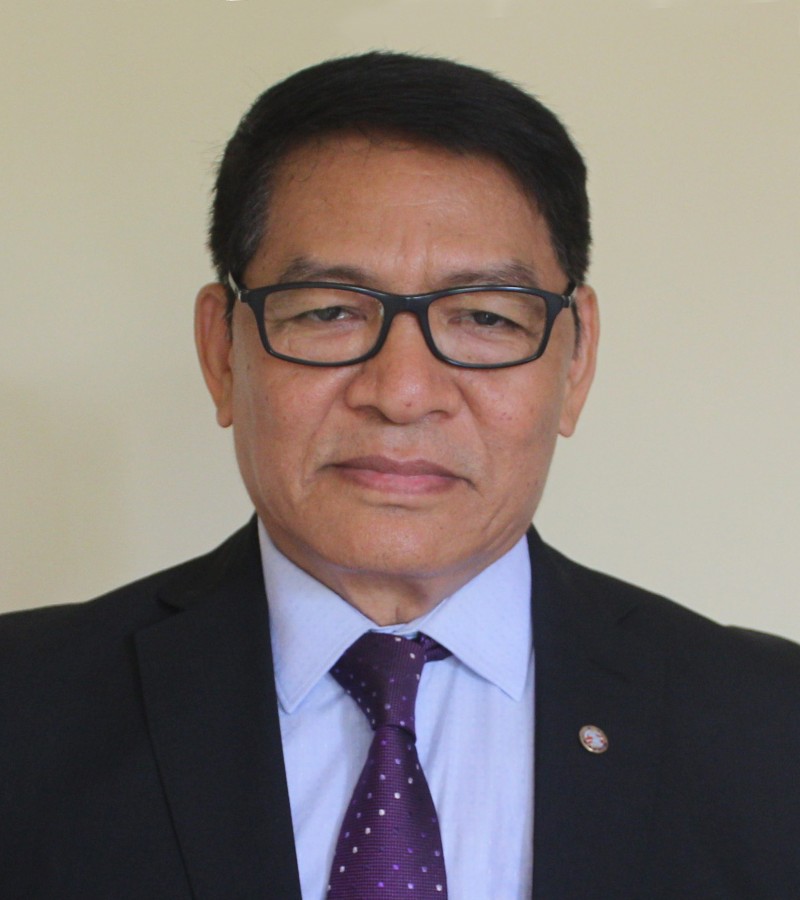Editorial
Persecution as an Opportunity
Opinion | Editorial | John S. Shilshi | 23-Mar-2025

The history of the church is replete with stories of persecution, the crucifixion of Christ itself being the greatest of all. Rome, where the Vatican, the supreme seat of the Pontiff, stands today, in fact, was one of the foremost places where Christian persecution began. Their refusal to accept other gods apart from Christ was interpreted by the powers that be as a measure of defiance, therefore, declared as nonconformist and unwilling to mainstream with the rest. Thus, early Christians were forced to congregate in some nondescript places secretly and practice the faith. These activities again was interpreted as acts of treason, while the Eucharist was dubbed as cannibalism and incest, leading to the infamous "Great Fire" during the reign of Emperor Nero. In other words, the history of Christian persecution dates to the 1st century, and it was within those constraints that the church grew to the present size and stature.
Factually, therefore, there has been no region or country where Christians have not faced persecution. The appearance of Christ on earth in his human form, yet a God, baffled many because he repeatedly demonstrated his greatness as a messenger of love, peace, and hope. To the ruling classes of all hues, his followers were anything but potential agents of social upheaval that could topple regimes, simply because they showed courage and determination to speak the truth fearlessly. Therefore, there was a pervasive effort to restrict Christian space. For example, in the 16th century, Japan imposed a nationwide ban on the practice of Christianity. Other nations too adopted laws to help them restrict Christian activity and hand down harsh punishments against defaulters. The large number of martyrs in the roll of the Catholic Church is testimony to this.
In this country, too, persecution of Christians is not a new phenomenon. There have been instances of attempts to stifle Christian activities in various parts of India under successive regimes, albeit to varying degrees. In the last ten years or so, however, the attempt to restrict Christian activities has increased exponentially. In addition to the selective silence maintained by those in power against acts of street urchins attacking Christians and their institutions in different parts of the country, the attempt to shrink Christian space through policy intervention is clearly visible. They come in the form of anti-conversion laws, with ambiguous definitions of offenses to enable dual interpretations. Arunachal Pradesh's ongoing attempt to revive a dormant anti-Christian law serves as a recent example.
According to hate crime documentation groups, there were 834 incidents of violence against the Christian community in various states by December 2024. States like Uttar Pradesh, Madhya Pradesh, and Chhattisgarh have become the hotspots of hate speeches against minority groups, brutal mob violence, and rampant social ostracization in which elements of the law and justice apparatus are complicit. Many attacks go unreported for fear of retribution in the environment of impunity and political patronage. As recently as March 8, the chief minister of Madhya Pradesh, while addressing an audience on International Women’s Day, announced that his government was contemplating amending the anti-conversion law to insert a clause where the conversion of women becomes a crime punishable with the death penalty. Other states with anti-conversion laws will soon follow suit.
So, though much is happening and brewing around us, the Catholic response has been lackadaisical and laidback as usual, adhering to a narrow perspective of "simple living and high thinking." For example, neither the CBCI nor the CCBI issued any statement in response to the remarks made by the MP chief minister, which has far-reaching implications. Likewise, no state-level Catholic organization had said anything about this, except for the All India Catholic Union (AICU), which expressed concern as one of many points in a March 15 press release. Does the church really believe that the subject was just rhetoric?
We need to remind ourselves that in the diverse, yet vibrant, cultural and religious landscape of India, freedom and secularism are the most cherished pillars. Therefore, our Constitution (Articles 25-28) enshrines these fundamental rights to enable individuals to freely practice their faith and engage in religious activities. It is, therefore, the bounden duty of every citizen, most of all members of the hierarchy and lay bodies, to speak out against such sinister intents. It is important to recognize that should such intention fructify, nuns and female principals in schools and colleges would likely be the most vulnerable. Even though arrests and prosecutions might not result in convictions, they would effectively serve the intended purpose of exerting pressure.
It's time for us to abandon our culture of silence and develop the habit of speaking out against injustices. The moment is opportune for us to emulate the early Christians, who transitioned from humble believers to influential Christian leaders, thereby laying the foundation for the Church's growth. They did it even without legal sanction and protection. We can do it within the framework of the constitution, for after all, “Blessed are those who are persecuted because of righteousness, for theirs is the kingdom of heaven” (Mat: 5:15). Let persecution be an opportunity for us to assert our rights.
Visitor comments
Raphael DSouza
25-Mar-2025
It (persecution) was an opportunity, then. Is it today, let me ask myself and you ask yourself
Leave a comment

Capt Eddie Viegas
25-Mar-2025
Well said Mr John Shilsi. The lay Christian leaders from across the country should join hands with the hierarchy across denominations in India and highlight to the political leaders the contribution of Christianity to the development of our country since independence.